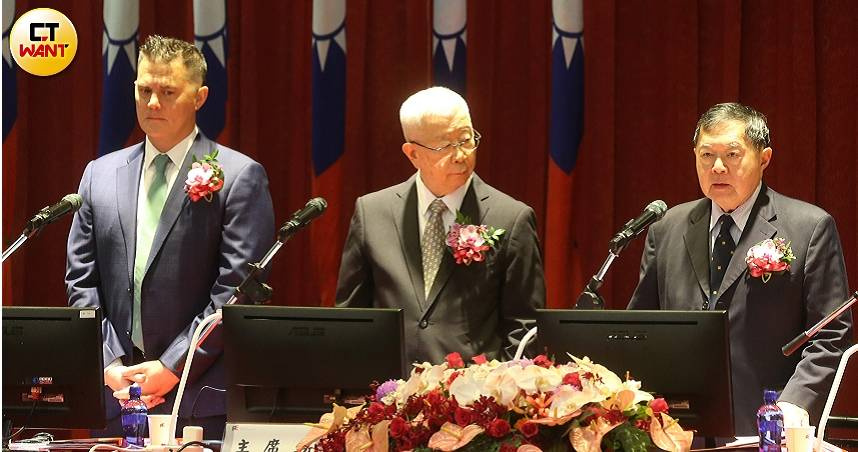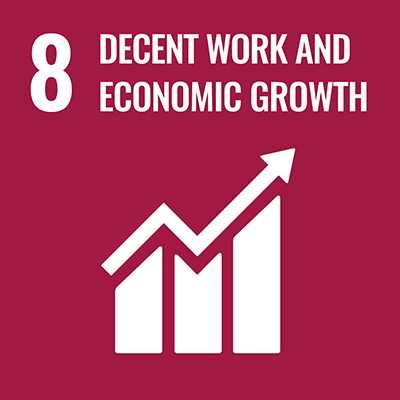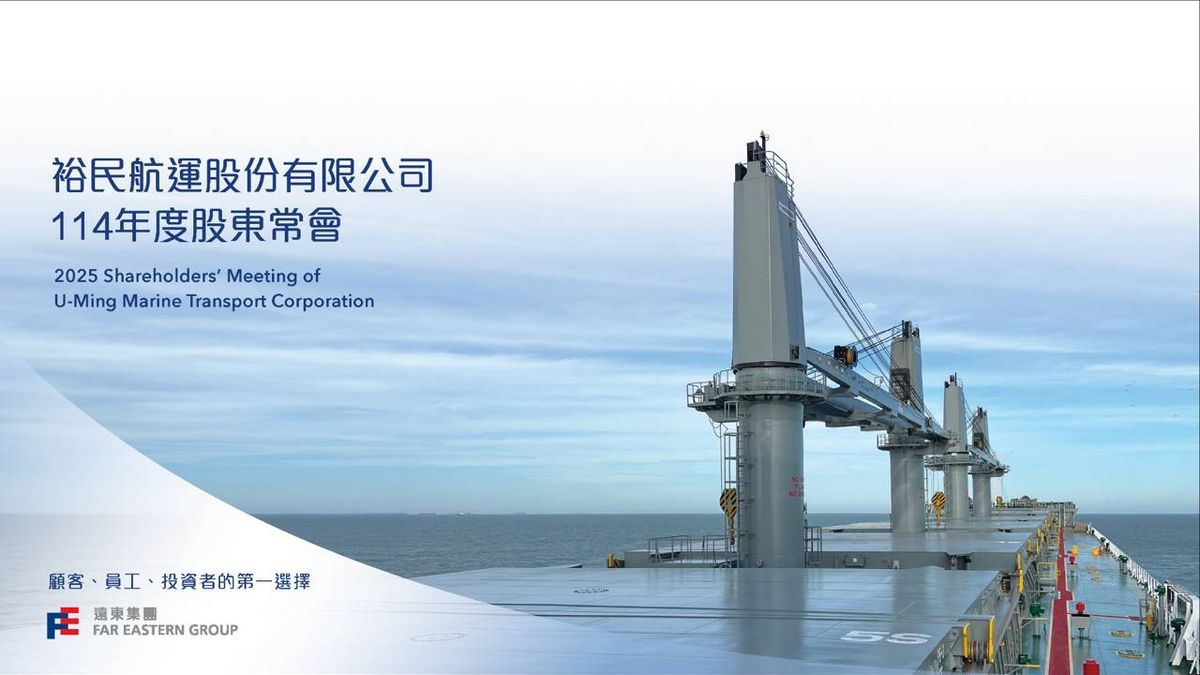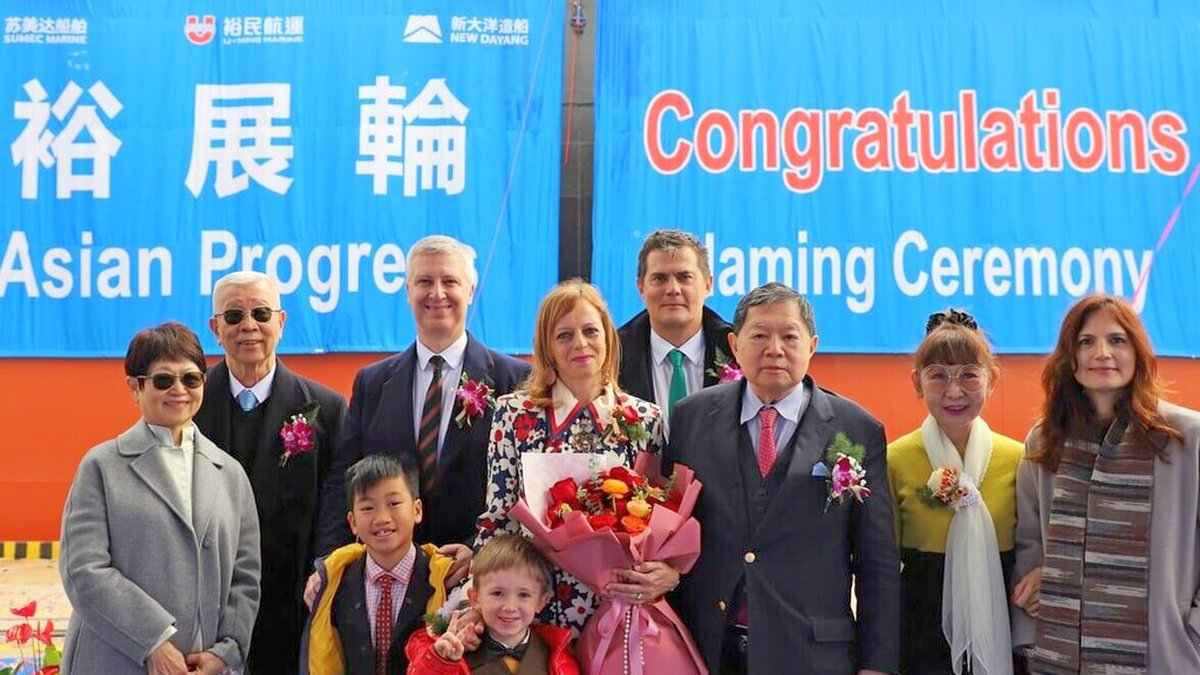Efficient Fleet Leading the Market and Strategically Paving the Path to Profitability

I. Performance Overview
U-Ming Marine Transport Corporation held its 2024 Annual Shareholders' Meeting at 9:00 a.m. today (June 3) at the Taipei Hero House in Taipei City. This year's meeting was conducted in a hybrid format, chaired by Chairman Mr Douglas Hsu. The meeting was successfully concluded with the approval of the 2023 financial statements and profit distribution proposals. U-Ming achieved a consolidated revenue of NT$14.37 billion in 2023, with operating profit of NT$2.708 billion and net profit after tax of NT$2.669 billion, resulting in earnings per share (EPS) of NT$3.24. A cash dividend of NT$2.40 per share was approved during the meeting, maintaining the company’s record of high surplus payouts and dividend yields. With retained earnings and distributable legal reserves totalling NT$17.201 billion, equivalent to NT$20.35 per share for future dividend distribution, U-Ming will continue its efforts to reward shareholders with a strong performance.
II. Shipping Market Overview
The global economy is showing resilience during the steady process of recovery. The International Monetary Fund (IMF) predicts a global GDP growth rate of 3.2% for the current and next year, with China's growth rate at 5% and India's at 6.8%, making them the two fastest-growing major economies globally. Steady global economic growth further boosts demand for bulk commodities, with Clarksons forecasting a 3.6% growth in tonne-mile demand for dry bulk trade in 2024. The World Steel Association predicts a sustained acceleration in global steel demand, reaching a growth rate of 1.7% in 2024, with continued upward pressure on iron ore transportation demand. Additionally, the growth rate of alumina trade volume leads all dry bulk commodities, with an estimated demand growth of 8% this year, driving demand for cape-size vessels. Shipping rates performed well in the first four months of 2024, and the shipping market outlook for the second half of the year remains optimistic. Currently, the new ship order-to-fleet ratio and fleet growth rate are at historical lows of 9% and 2.9%, respectively. Moreover, vessels aged over 15 years constitute 20% of the market, and the implementation of environmental regulations is expected to phase out older vessels. Additionally, vessel sailing speeds have decreased by nearly 6% compared to the peak in 2021. These factors are expected to reduce vessel supply, leading to a more balanced supply-demand equilibrium in the shipping market. The Suez Canal crisis further disrupts the shipping supply chain, with vessels bypassing the Suez Canal and rerouting via the Cape of Good Hope, reducing capacity supply while increasing tonne-mile demand.
III. Early Deployment of Energy-Efficient New Ships to Embrace Performance Growth
U-Ming is ahead in implementing its new ship construction plan, with a total of nine environmentally friendly and energy-efficient new ships launched in 2023. These ships perpetuate U-Ming's legacy of eco-conscious construction, boasting environmental sustainability and youthful vitality as the two primary competitive strengths of the U-Ming fleet. Furthermore, the proportion of intelligent applications in the fleet has increased, enhancing fault troubleshooting speed, reducing failure rates, and improving operational efficiency through ship networking management. U-Ming's proprietary Fleet Safety Management (FSM) system has obtained certifications such as SMARTShip Notation from classification societies including NK of Japan, DNV of Norway, CR of Taiwan, and BV of France, and has also won the Maritime Safety Award from the Maritime and Port Authority of Singapore. Most importantly, U-Ming has an experienced management team that understands market supply-demand trends, adjusts the proportion of long-term charter contracts versus spot contracts in a timely manner, and operates business flexibly, creating outstanding performance. U-Ming's competitive advantage is evident, poised to embrace a market upturn and expected to achieve another peak in performance.
IV. Emphasis on ESG Sustainable Operations
U-Ming places importance on ESG. In 2024, it will release its first independent report on greenhouse gas inventory for both parent and subsidiary companies, enhancing the comprehensiveness of carbon disclosure. Additionally, to help investors better understand the financial impacts of climate risks and opportunities for U-Ming, it is leading the industry in planning to produce independent reports on climate-related financial disclosures (TCFD). Moreover, besides being included in the FTSE4Good TIP Taiwan ESG Index for multiple consecutive years, U-Ming was selected as one of the "2023 Foreign Investors' Best-in-Class Taiwan Top 100" companies by the Taiwan Corporate Governance Association and received the "Platinum Award for Sustainability Reports" and "Taiwan Top 100 Sustainable Exemplary Enterprises Award" from the Taiwan Sustainable Energy Research Foundation in 2023. Received three honors in the Ministry of Transportation and Communications (MOTC)'s 2023 selection of outstanding shipping companies: "Outstanding Fleet Expansion," "Outstanding Green Shipping Development," and "Outstanding Support for Maritime Training." U-Ming values employee welfare, receiving four major awards from HR Asia, including the "Best Companies to Work for in Asia," "Diversity, Equity & Inclusion Awards," "Digital Transformation Awards," and "Most Caring Company Awards." It also won the Ministry of Labor's Occupational Safety and Health Administration's "Workplace Sustainable Health and Safety" award in 2023, as well as being among the top 10% of "Healthy Workforce Sustainable Leadership Enterprises."
V. Future Development Strategy, Dual Growth Goals
U-Ming will continue to research the acquisition of a new generation of zero-carbon or alternative fuel dual-fuel environmentally friendly ships, while evaluating the installation of the latest energy-saving equipment on existing vessels. Additionally, it plans to enter the liquefied natural gas (LNG) transportation and large-scale wind power operation and maintenance vessel (SOV) markets to expand its diversified layout, aligning with international environmental trends. Leveraging its proprietary Fleet Safety Management System (FSM) and collaborating with startups, U-Ming will utilize artificial intelligence technology to enhance navigation safety. It will also use automated system monitoring of the Carbon Intensity Indicator (CII) to continuously improve and optimize vessel performance. To provide high-quality transportation services and offer customers a selection of various types of bulk carriers, U-Ming will optimize transport efficiency and reduce carbon emissions in compliance with international environmental regulations by timely replacing old vessels with new ones. U-Ming's long-term fleet growth strategy aims to exceed 100 vessels with a total carrying capacity surpassing 10 million tonnes.
VI. Fleet Information
U-Ming currently owns various types of vessels including Capesize, Panamax, Post Panamax, Ultramax, Cement Carriers, Very Large Crude Carriers (VLCCs), Very Large Ore Carriers (VLOCs), and Crew Transfer Vessels (CTVs) for offshore wind farms. With owned, joint venture, and under-construction vessels, U-Ming's fleet comprises 72 vessels with a total carrying capacity of 8.84 million tonnes. It has subsidiaries overseas in Singapore and Hong Kong, Xiamen, including in Taipei, U-Ming Marine Offshore Company Ltd which focuses on green energy transportation.
Business and Company
News Type
UN SDG
Share
Download
Source
Uming / Photo Credit: CTWANT





